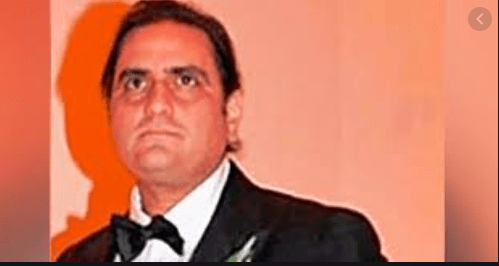Just a day after the ECOWAS court ruled that Venezuela’s Alex Saab be freed in Cape Verde, and all processes towards his extradition to the US to be stopped, the Supreme Court of Justice in Cape Verde has also ruled that the businessman and diplomat be extradited.
“[This court] confirms the judicial authorization for the extradition of the defendant to the U.S… The extradition that is now authorized is for the extradited person to be subject to a criminal process for only one of the crimes that is being attributed, in accordance with the guarantee offered by the requesting state,” the court indicated in its ruling.
The defence team of Alex Saab have already served notice that they will appeal the ruling.
Dr Jose-Manuel Pinto Monteiro who has been leading Alex Saab’s defence team in Cape Verde described the ruling as disappointing, accusing Cape Verde of destroying global diplomatic order.
” For the Supreme Court to deliver a ruling which serves no purpose but satisfy the political avarice of others is very disappointing,” he said.
Femi Falana, who led Alex Saab’s ECOWAS defence team said the ECOWAS Commission as well as the ECOWAS Heads of State must call Cape Verde to order over its disobedience to the ECOWAS court’s decision.
“There can be no debate about the binding nature of the ECOWAS Court’s decision on Cape Verde. I call upon members of the ECOWAS Commission to stand up and make clear their opposition to the behaviour of Cape Verde….I also call upon the ECOWAS Heads of State to convey their concern and displeasure at the shameful actions of Cape Verde,” he said.
Alex Saab, was arrested in Cape Verde on June 12, 2020 on the orders of the US.
The US subsequently made a request for him to be extradited to face charges of corruption and money laundering.
Although Cape Verde accepted the request, it was stopped from carrying it out immediately due to court proceedings including the one at the ECOWAS Court.
Besides the ECOWAS Court and the Supreme Court in Cape Verde, there is also a case before the US court and at the Africa Commission on Alex Saab’s arrest and planned extradition.
His lawyers have already given indications that they will use every available legal option to stop the extradition process.
Basis for Supreme Court decision
The Cape Verde court’s decision among other things was based on its conclusion that there was yet to be proof that Cape Verde had been notified that Alex Saab will be passing through its territory as a special envoy.
It was of the view that while Alex Saab as a special envoy deserving of treatment as diplomat was known to Venezuela and Iran where he was on his way to before his arrest, Cape Verde was not informed.
“For the time being, there is no evidence in the process that the State of Cape Verde has consented to the Applicant transit through its territory with the status of special envoy. And, without that consent, the Cape Verdean Courts cannot recognize the Claimant’s status as special envoy, which means that he does not enjoy the inviolability and immunities to which he is based, based on the United Nations Convention on Missions,” the court noted.
On one of the defence team’s averments that the US’ extradition request was politically motivated, the court said although it is aware of US sanctions on Venezuela and related issues, it does not see any link between the request for extradition of Alex Saab and any political ideologies.
“…the crimes for which the extradite is persecuted are not of a political nature, nor do we think they are for political and ideological reasons, so the alleged issue does not proceed,” the court remarked.
Concerning the earlier decision of the ECOWAS court on the matter, Cape Verde’s Supreme Court said it was not binding on the country because the country has not signed the Protocol that authorizes the ECOWAS court to make determinations on the issue of alleged violation of fundamental rights.
” Therefore, as ECOWAS is not a supranational organization for the time being, and the State of Cape Verde has not even signed the 2005 Protocol, there is no basis for it to be considered linked to such an instrument. and, consequently, to the decisions of the Court of Justice issued under the competences conferred on it by such an instrument of which it does not form part,” the ruling of the court stated.










